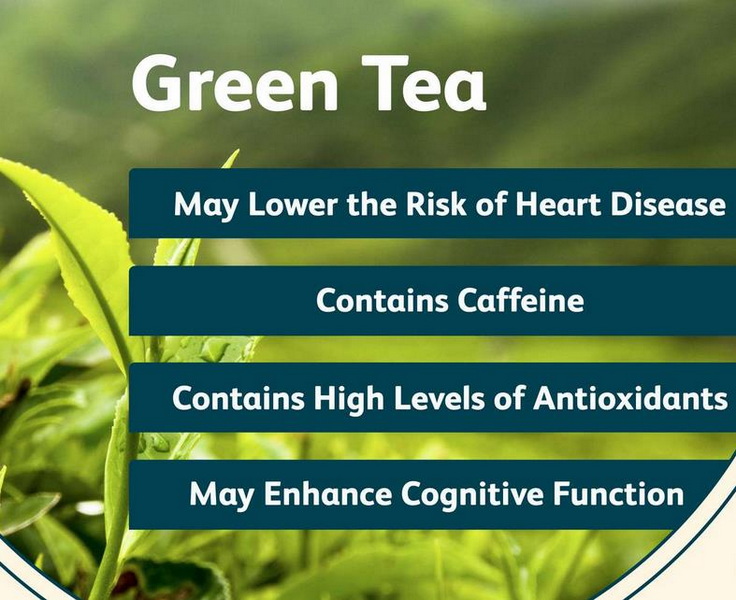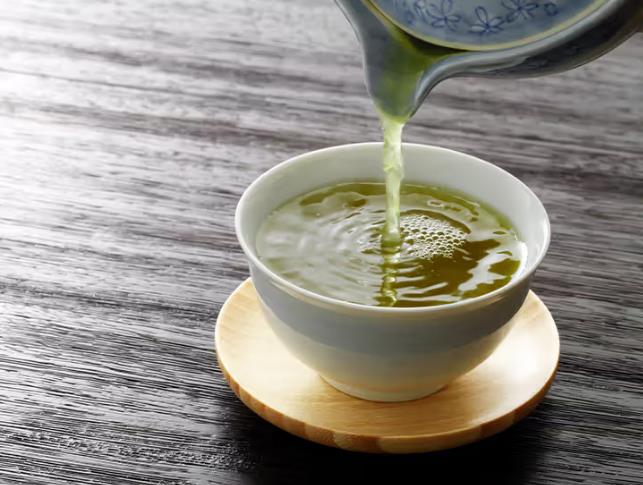Content Menu
● What is Green Tea Extract?
● Health Benefits of Green Tea Extract Pills
>> 1. Antioxidant Properties
>> 2. Weight Loss Aid
>> 3. Heart Health
>> 4. Brain Health
>> 5. Liver Function Improvement
>> 6. Mechanisms Behind Health Benefits
>> 7. The Role of Lifestyle Factors
>> 8. Cultural Perspectives on Green Tea Consumption
● Other Potential Benefits
● Potential Side Effects
● How to Take Green Tea Extract Pills
● Comparative Effectiveness
● Conclusion
● Frequently Asked Questions (FAQ)
>> 1. What are the main benefits of taking green tea extract pills?
>> 2. Are there any side effects associated with green tea extract?
>> 3. How much green tea extract should I take daily?
>> 4. Can I achieve similar benefits by drinking green tea instead?
>> 5. Is it safe to take green tea extract long-term?
● Citations:
Green tea extract pills have gained significant popularity as dietary supplements, touted for their potential health benefits ranging from weight loss to improved heart health. This article explores the effectiveness of green tea extract pills, examining their benefits, potential side effects, and the scientific evidence behind their claims.

What is Green Tea Extract?
Green tea extract is derived from the leaves of the *Camellia sinensis* plant and is rich in antioxidants known as catechins, particularly epigallocatechin gallate (EGCG). These compounds are believed to provide various health benefits. Green tea extract can be consumed in different forms, including capsules, powders, and liquids.
Health Benefits of Green Tea Extract Pills
1. Antioxidant Properties
Green tea extract is renowned for its high antioxidant content. Antioxidants help combat oxidative stress caused by free radicals, which can lead to chronic diseases such as cancer and heart disease. Studies have shown that the catechins in green tea can neutralize free radicals and reduce inflammation in the body. A systematic review indicated that green tea extract supplementation significantly reduces oxidative stress markers like malondialdehyde (MDA) while increasing total antioxidant capacity (TAC) in various populations[1].
2. Weight Loss Aid
One of the most common reasons people take green tea extract pills is for weight loss. Research indicates that green tea extract may enhance fat oxidation and improve metabolic rate. A study involving women with central obesity found that participants who took high-dose green tea extract experienced significant weight loss and reductions in waist circumference after 12 weeks. However, results can vary based on individual factors such as diet and exercise.
Despite its popularity as a weight loss supplement, some experts caution that while green tea may assist in weight management, it should not be viewed as a miracle solution. A comprehensive review of multiple studies found that participants consuming green tea extract typically experienced minimal weight loss, often less than four pounds[7].
3. Heart Health
Green tea extract may also contribute to heart health by improving cholesterol levels. It has been shown to lower low-density lipoprotein (LDL) cholesterol while increasing high-density lipoprotein (HDL) cholesterol. Regular consumption of green tea is associated with a reduced risk of cardiovascular diseases. For instance, a meta-analysis demonstrated that individuals who consumed two to four cups of green tea daily had a 24% lower risk of stroke[6].
4. Brain Health
The catechins in green tea extract have neuroprotective properties that may help reduce the risk of neurodegenerative diseases such as Alzheimer's and Parkinson's disease. Studies suggest that these compounds can enhance cognitive function and protect brain cells from oxidative damage. A study revealed that frequent green tea drinkers had a 64% lower risk of memory loss compared to those who did not consume it regularly[6].
5. Liver Function Improvement
Research indicates that green tea extract may support liver health by reducing fat accumulation in the liver and lowering liver enzyme levels associated with liver damage. A study found that participants taking green tea extract showed significant improvements in liver function markers[9]. However, it's essential to note that excessive consumption can lead to toxicity, so moderation is key.
6. Mechanisms Behind Health Benefits
Understanding how green tea extracts exert their beneficial effects involves delving into their biochemical interactions within the body:
- Catechin Activity: The primary catechin in green tea extract—EGCG—has been shown to enhance metabolic processes by increasing fat oxidation during exercise[9]. This mechanism not only aids in weight management but also contributes to overall cardiovascular health by improving lipid profiles.
- Impact on Hormones: Research has indicated that catechins can influence hormones related to appetite regulation such as leptin and ghrelin[1]. By modulating these hormones' levels, individuals may experience reduced hunger pangs leading to decreased caloric intake over time.
7. The Role of Lifestyle Factors
While supplements like green tea extract can provide additional support for health goals such as weight loss or improved cardiovascular function:
- Dietary Considerations: Incorporating a balanced diet rich in whole foods alongside supplementation can amplify results significantly[8]. Foods high in fiber combined with lean proteins can synergistically work with catechins for optimal metabolic performance.
- Exercise Synergy: Engaging in regular physical activity enhances the thermogenic effect attributed to catechins[7]. Studies show that participants who combined exercise with supplementation experienced greater fat loss compared to those who relied solely on dietary changes or supplements alone.
8. Cultural Perspectives on Green Tea Consumption
Green tea has been consumed for centuries across various cultures:
- Traditional Uses: In Asian cultures particularly Japan and China where consumption rates are highest; it has been used not just for enjoyment but also as a medicinal beverage believed to promote longevity and vitality[4].
- Modern Trends: Recently there has been a resurgence in interest globally regarding its potential health benefits leading many people towards both traditional brewing methods as well as modern supplement forms like capsules or powders[6].

Other Potential Benefits
In addition to the aforementioned benefits, green tea extract has been linked to several other health advantages:
- Cancer Prevention: Some studies suggest that the antioxidants in green tea may help reduce the risk of certain cancers by inhibiting tumor growth and reducing inflammation[10].
- Diabetes Management: Green tea may improve insulin sensitivity and lower blood sugar levels, making it beneficial for individuals with Type 2 diabetes[8].
- Skin Health: The anti-inflammatory properties of green tea may help prevent skin damage from UV rays and reduce acne[5].
Potential Side Effects
While green tea extract pills offer numerous benefits, they are not without risks. Some potential side effects include:
- Liver Damage: High doses of green tea extract have been linked to liver toxicity in some individuals. It's crucial to monitor liver enzyme levels if taking high doses.
- Caffeine Sensitivity: Green tea contains caffeine, which can cause side effects such as anxiety, insomnia, and increased heart rate in sensitive individuals.
- Gastrointestinal Issues: Some users report digestive issues like nausea or upset stomach when taking green tea extract supplements.
How to Take Green Tea Extract Pills
The recommended dosage of green tea extract varies but typically ranges from 250 mg to 500 mg per day. It's advisable to take these supplements with food to minimize gastrointestinal discomfort and maximize absorption.
Comparative Effectiveness
When considering the effectiveness of green tea extract pills versus drinking green tea itself, studies suggest that both methods provide health benefits; however, supplements may offer a more concentrated dose of catechins. Drinking several cups of green tea daily can also yield similar results without the risk of excessive caffeine intake associated with some extracts.
| Aspect | Green Tea Extract Pills | Drinking Green Tea |
| Concentration of Catechins | High | Moderate |
| Caffeine Content | Variable | Generally lower |
| Convenience | Easy to take | Requires preparation |
| Risk of Side Effects | Higher potential | Lower potential |
Conclusion
Green tea extract pills can be effective for various health benefits, including weight loss, improved heart health, and enhanced brain function due to their high antioxidant content. However, potential side effects should not be overlooked, particularly concerning liver health and caffeine sensitivity. As with any supplement, it is essential to consult with a healthcare provider before starting a new regimen.

Frequently Asked Questions (FAQ)
1. What are the main benefits of taking green tea extract pills?
Green tea extract pills are primarily known for their antioxidant properties, potential weight loss benefits, heart health improvement, brain protection against neurodegenerative diseases, and support for liver function.
2. Are there any side effects associated with green tea extract?
Yes, potential side effects include liver damage at high doses, caffeine-related issues like anxiety or insomnia, and gastrointestinal discomfort.
3. How much green tea extract should I take daily?
The recommended dosage typically ranges from 250 mg to 500 mg per day; however, it's best taken with food.
4. Can I achieve similar benefits by drinking green tea instead?
Yes, drinking several cups of green tea daily can provide similar health benefits due to its catechin content; however, the concentration is lower than that found in supplements.
5. Is it safe to take green tea extract long-term?
While moderate use is generally considered safe for most people, long-term use should be monitored due to potential risks associated with high doses.
Citations:
[1] https://pubmed.ncbi.nlm.nih.gov/38031409/
[2] https://www.frontiersin.org/journals/nutrition/articles/10.3389/fnut.2022.1084455/full
[3] https://www.mountsinai.org/health-library/herb/green-tea
[4] https://hsph.harvard.edu/news/green-tea-healthy-habit/
[5] https://www.innerbody.com/best-green-tea-extract
[6] https://health.clevelandclinic.org/green-tea-health-benefits
[7] https://www.nytimes.com/2024/09/24/well/green-tea-weight-loss-ozempic.html
[8] https://time.com/7017512/is-green-tea-good-for-you/
[9] https://www.healthline.com/nutrition/10-benefits-of-green-tea-extract
[10] https://www.medicalnewstoday.com/articles/269538






























